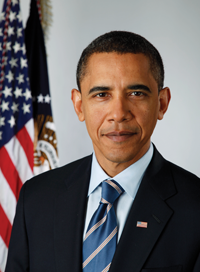Healthcare bill on precipice

The ultimate fate of President Barack Obama’s 2010 Patient Protection and Affordable Care Act (PPACA) now lies in the hands of the nine U.S. Supreme Court Justices. In late March, the case was brought before the Supreme Court after 26 states—including Virginia—challenged the constitutionality of the law and its individual health care mandate, requiring every American to purchase health care or pay a yearly fine of the greater of $695 or 2.5 percent of income when fully phased in, according to CNN.
Supporters of PPACA argue that the law makes the nation’s health care system more efficient by simplifying the process of health care, which in turn saves the nation billions of dollars. Opponents of the law argue that the mandate is unconstitutional and will actually add billions of dollars to the nation’s budget deficit.
“To uphold ObamaCare, you would have to rewrite the Constitution. A decision upholding ObamaCare will do serious damage to the integrity of the Supreme Court,” Mat Staver, dean of Liberty University School of Law, said in a recent press release.
During the three days of oral arguments, Justice Anthony Kennedy, who is considered by many people to be the swing-vote, appeared to be leaning away from support of the individual mandate.
“…Here the government is saying that the Federal Government has a duty to tell the individual citizen that it must act, and that is different from what we have in previous cases and that changes the relationship of the Federal Government to the individual in a very fundamental way,” Justice Kennedy said during day two of the Supreme Court arguments.
If the court strikes down the law’s individual mandate, there is much speculation as to whether the PPACA health care law can survive without it. But during the arguments, Justice Ruth Bader Ginsburg indicated that even without the individual mandate some of the law might be salvageable.
“Why should we say it’s a choice between a wrecking operation, which is what you are requesting, or a salvage job? And the more conservative approach would be salvage rather than throwing out everything,” Justice Ginsburg said in response to comments made by Justice Paul Clement during the hearings.
Despite the mixed feelings expressed by the Justices during the Supreme Court hearings, there are some people in government who strongly support the law and are confident it will not be struck down.
When asked about what Democrats will do if the court strikes down the law, Vice President Joe Biden told CBS’s “Face the Nation” host Bob Schieffer on April 1, “We think the mandate and the law is constitutional and we think the court will rule that way.”
President Obama’s most recent comments about this issue have caused a stir between the Court and the White House.
“Ultimately, I am confident that the Supreme Court will not take what would be an unprecedented, extraordinary step of overturning a law that was passed by a strong majority of a democratically elected Congress,” Obama said during a press conference with Canadian Prime Minister Stephen Harper and Mexican President Felipe Calderon on April 2.
Following President Obama’s comments, some people, including U.S. 5th Circuit Court of Appeals Judge Jerry Smith, claimed the President’s remarks could be read as a challenge to the authority of federal courts, according to CBS News.
In a recent press release, Staver agreed with Smith’s assertions saying, “Our Constitution separates the branches of government. President Obama shirked his duty to defend the Defense of Marriage Act but seems to believe he has final authority on ObamaCare. The only thing ‘unprecedented’ about this situation is the President’s misunderstanding of the Constitution.”
Others came out in support of what the President said including Attorney General Eric Holder, who said that the President recognizes the Court authority but that the Executive Branch has often urged courts to “respect the legislative judgments of Congress,” according to the Huffington Post.
On Friday, March 30, the Justices cast preliminary votes after the three days of initial arguments, but the public will likely not know the final outcome of the healthcare debate until June. Meanwhile, Justices will spend the next three months deliberating and drafting their opinions and dissents.
Full audio and transcript of the health care hearings can be found on the U.S. Supreme Court website www.supremecourt.gov.

